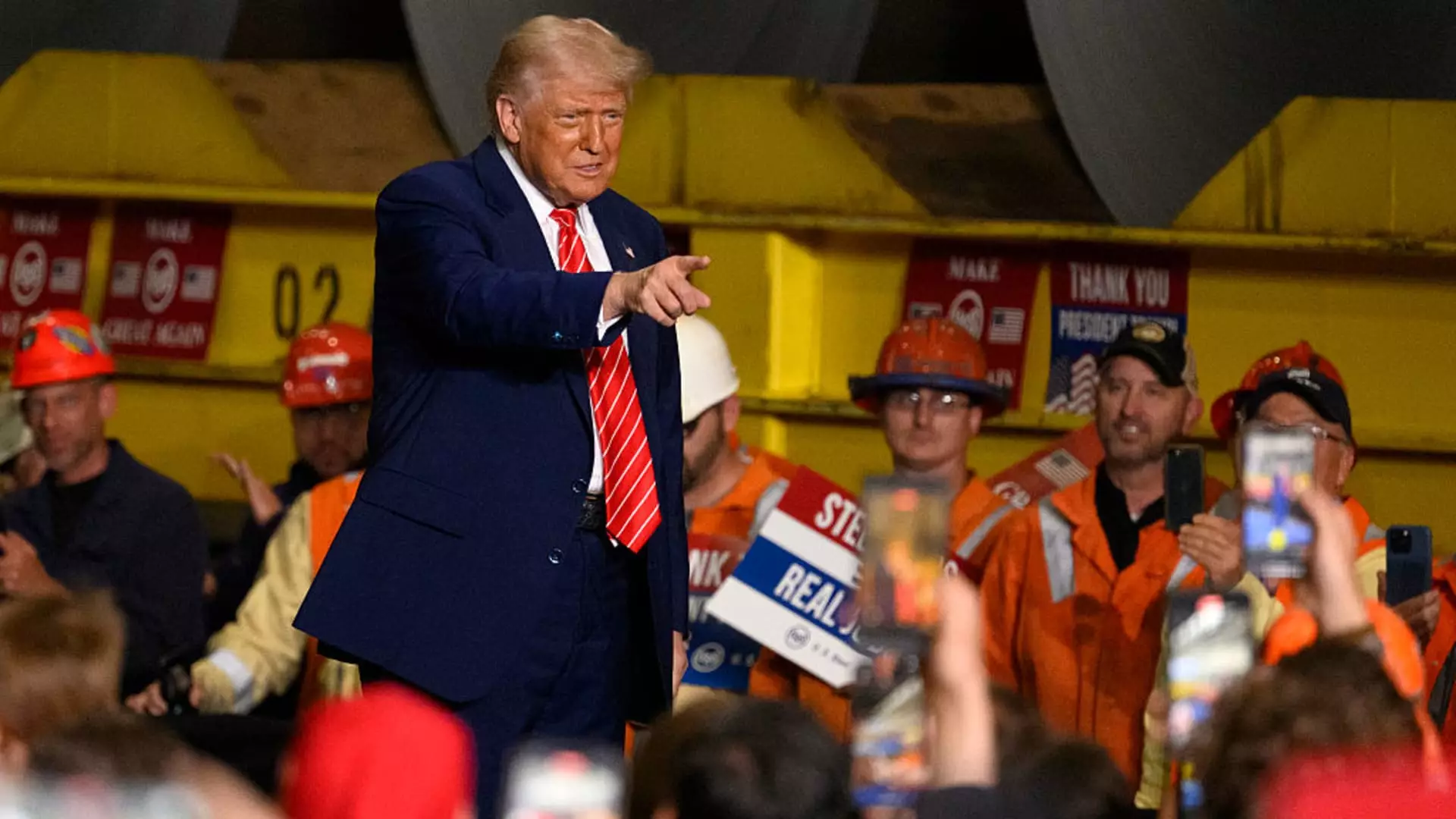In a move echoing isolationist sentiment more than strategic economic policy, President Donald Trump’s announcement to double tariffs on steel imports from 25% to 50% has set off alarm bells not only in the United States but across the globe. This significant escalation in trade tensions threatens to undermine not only the very foundation of economic alliances but also the wellbeing of consumers and industries reliant on steel. Critics, including the European Union, have been quick to voice their concerns, arguing that such unilateral actions complicate the already complex web of international trade relations. The precarious balance between protectionism and global cooperation appears to be tipping dangerously towards the former, with dire implications for all stakeholders involved.
Domestic Consequences: A False Sense of Security
Trump’s rallying cry—a promise of no layoffs and no outsourcing—sits at odds with the reality faced by countless workers in associated industries. The United Steelworkers union has labeled the tariff increase a “direct attack” on Canadian industries and labor markets. These hard-hitting tariffs threaten not only the livelihoods of those working in steel and aluminum production but also send ripples through communities that depend on these jobs. The administration’s assurances can appear hollow when weighed against the potential for widespread disruption, raising an unsettling question: are American workers truly protected, or are they merely victims of posturing and political game-playing in a misguided quest for nationalistic pride?
The EU’s Strategic Counterpunch
The European Union has signaled that it is prepared to respond against these tariff hikes with countermeasures that could further sour transatlantic relations. This sort of retaliatory stance is emblematic of a broader trend toward self-serving economic nationalism that characterizes contemporary global politics. It’s not merely a tactic; it’s a reflection of deep-seated frustrations that could lead to a tit-for-tat trade war, exacerbating tensions and economic instability. The EU’s willingness to impose immediate response measures underscores the fragile nature of global trade networks. What we are witnessing is not just an economic spat; it’s a potential unraveling of decades of diplomatic relationships that have been painstakingly built.
Judicial Roadblocks and Economic Implications
Adding another layer of complexity, recent legal challenges to the Trump administration’s tariffs have muddled the waters. The U.S. Court of International Trade’s pause on almost all country-specific tariffs hints at a fundamental weakness in the administration’s trade strategy. The reliance on tariffs as leverage in renegotiating trade deals has been put into question, and the ruling could dissuade future unilateral actions. In this context, the administration is caught in a paradox: while trying to exert control over international trade, it may have inadvertently undermined its own position.
A Call for Cooperative Solutions
At its core, this trade war must serve as a wake-up call for leaders on both sides of the Atlantic. It’s imperative that we shift our perspective from one of competition to one of collaboration. The increasing costs incurred by businesses and consumers alike should compel both the U.S. and its trade partners to seek a negotiated solution. The looming threat of retaliatory tariffs serves only to harm the very workers that these trade policies are designed to protect. We must strive for constructive dialogue that acknowledges the interconnectedness of today’s global economy.
President Trump’s decision to escalate tariffs could prove catastrophic, not just for trade relationships but for American workers who deserve better than to be pawns in a political chess game. As the EU prepares its countermeasures and legal challenges unfold, the need for dialogue over discord has never been clearer. As much as industrial sectors may crave protection, a robust economy thrives on collaboration, understanding, and mutual benefit. It is time for a paradigm shift—towards policies that foster unity rather than division.

Leave a Reply